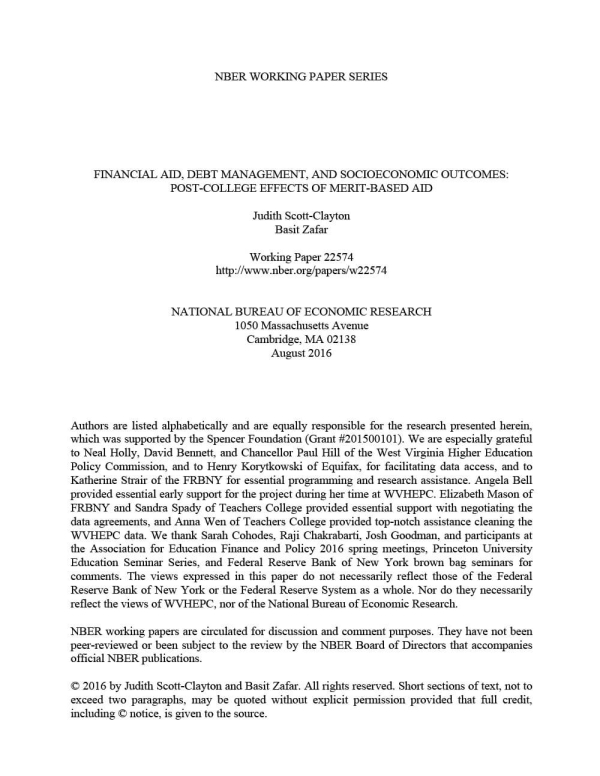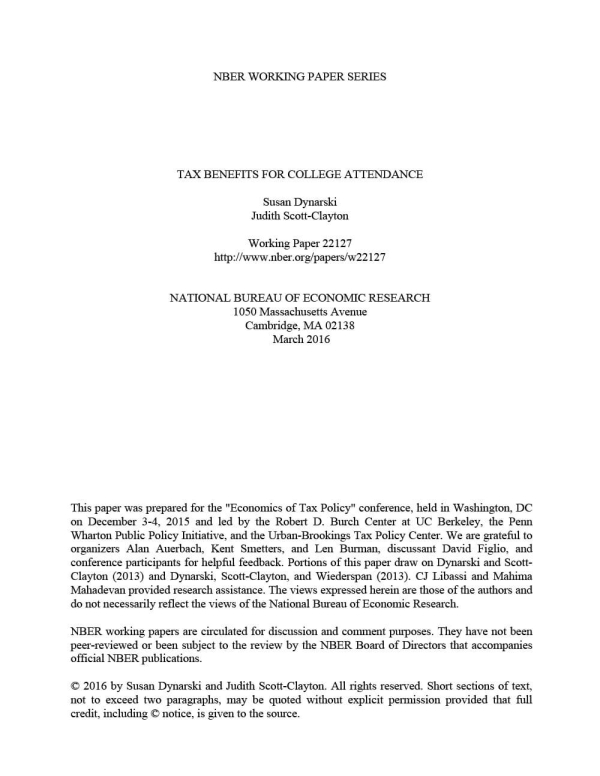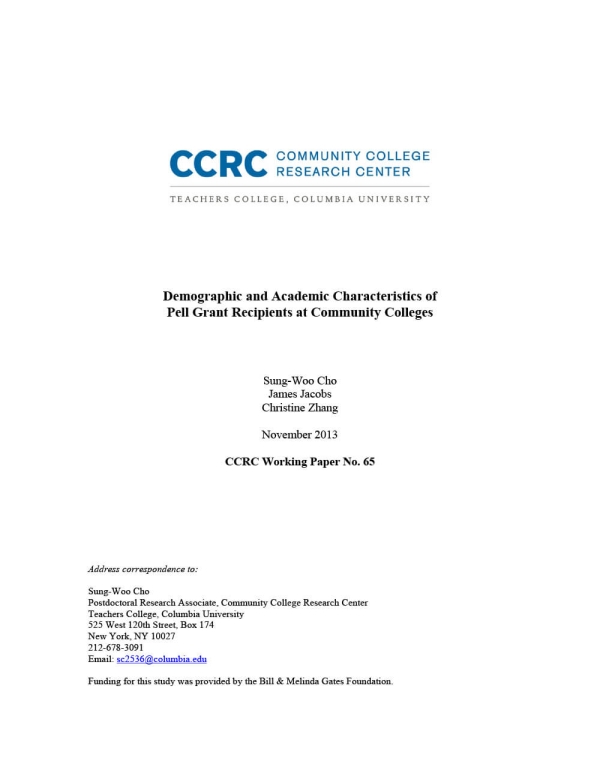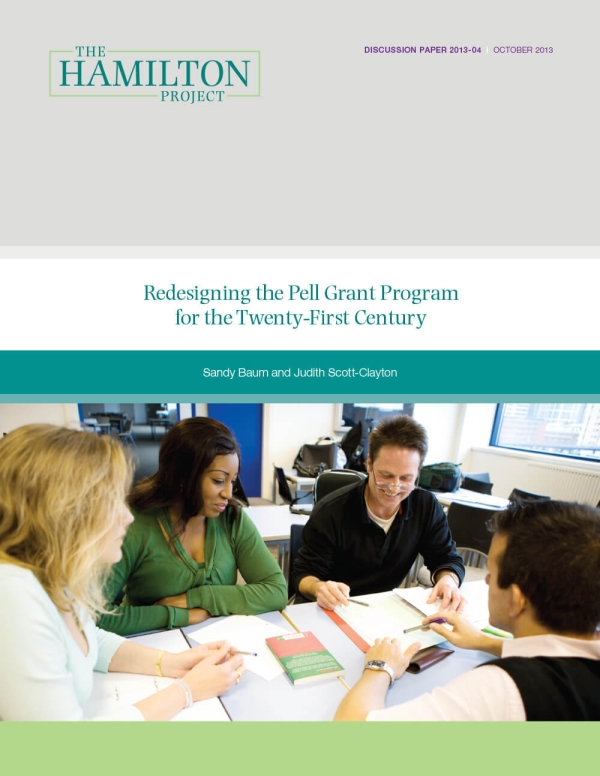Financial Aid, Debt Management, and Socioeconomic Outcomes: Post-College Effects of Merit-Based Aid

This paper utilizes two complementary quasi-experimental strategies to identify causal effects of the WV PROMISE scholarship, a broad-based state merit aid program, up to 10 years post–college entry and examine important outcomes that have not previously been examined, including homeownership, neighborhood characteristics, and financial management.
Tax Benefits for College Attendance

This NBER working paper outlines tax-based student aid programs and assesses their impact on student behavior
Should Student Employment Be Subsidized? Conditional Counterfactuals and the Outcomes of Work-Study Participation

Using two waves of the Beginning Postsecondary Student survey, this paper provides the first national estimates of the effect of the Federal Work-Study program on students’ academic and labor market outcomes.
Demographic and Academic Characteristics of Pell Grant Recipients at Community Colleges

Findings from this paper suggest that while Pell recipients at community colleges have a stronger academic focus than non-Pell recipients, they may be taking more time to complete a credential than is prudent.
Redesigning the Pell Grant Program for the Twenty-First Century

In this discussion paper, the authors argue that the time has come to comprehensively redesign the Pell program, and they propose three major structural reforms to the Pell Grant program.
